
Is Work-Life Balance a Myth?
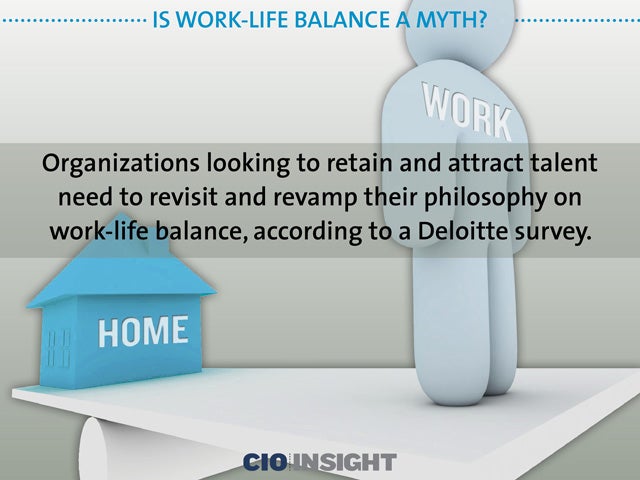 Is Work-Life Balance a Myth?
Is Work-Life Balance a Myth?
Organizations looking to retain and attract talent need to revisit and revamp their philosophy on work-life balance, according to a Deloitte survey.
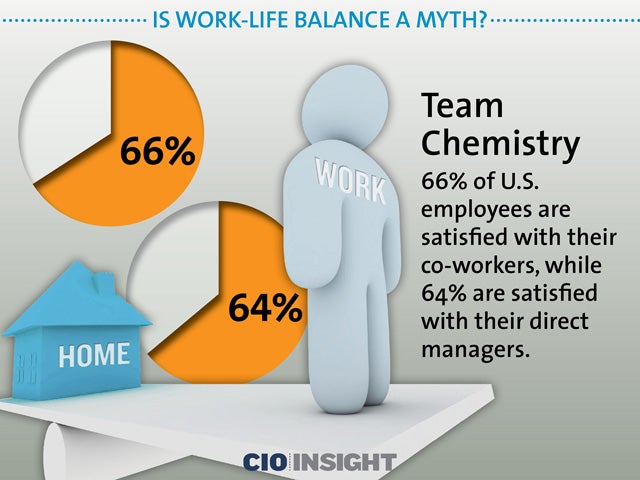 Team Chemistry
Team Chemistry
66% of U.S. employees are satisfied with their co-workers, while 64% are satisfied with their direct managers.
 Cool Space
Cool Space
58% are satisfied with their office environment.
 Mixed Vibes
Mixed Vibes
Only 53% are satisfied with their organization’s culture and 50% are satisfied with their company’s leadership.
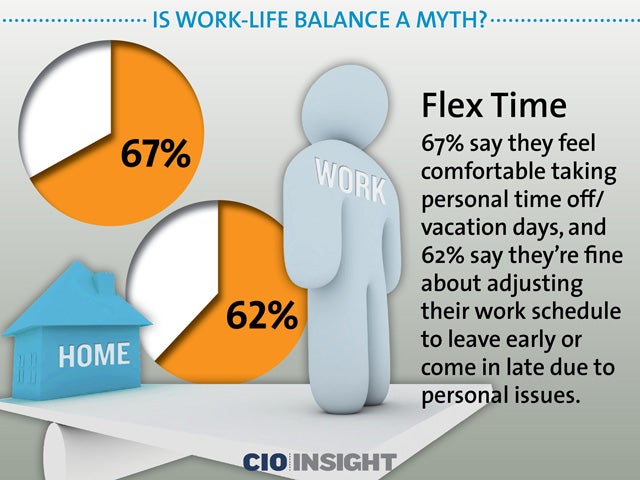 Flex Time
Flex Time
67% say they feel comfortable taking personal time off/vacation days, and 62% say they’re fine about adjusting their work schedule to leave early or come in late due to personal issues.
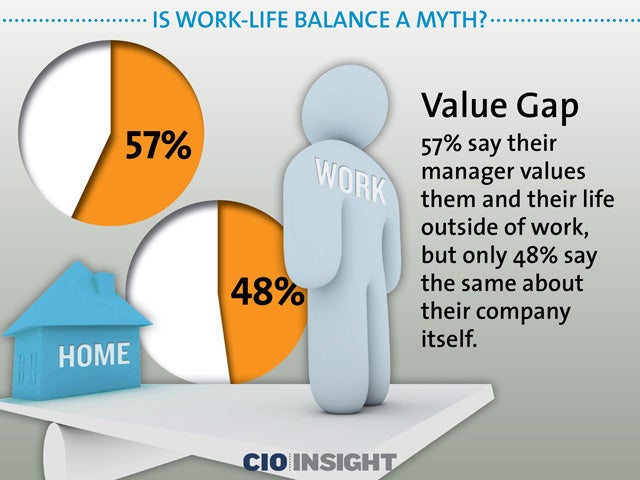 Value Gap
Value Gap
57% say their manager values them and their life outside of work, but only 48% say the same about their company itself.
 Boundary Issues
Boundary Issues
32% say they’ve consistently placed work commitments over family/personal commitments over the last six months.
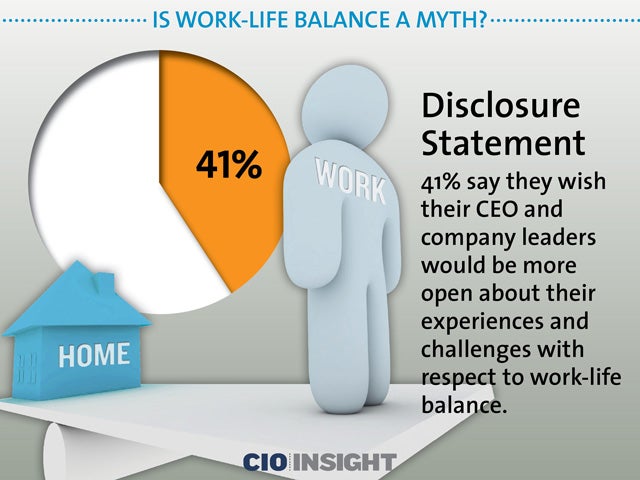 Disclosure Statement
Disclosure Statement
41% say they wish their CEO and company leaders would be more open about their experiences and challenges with respect to work-life balance.
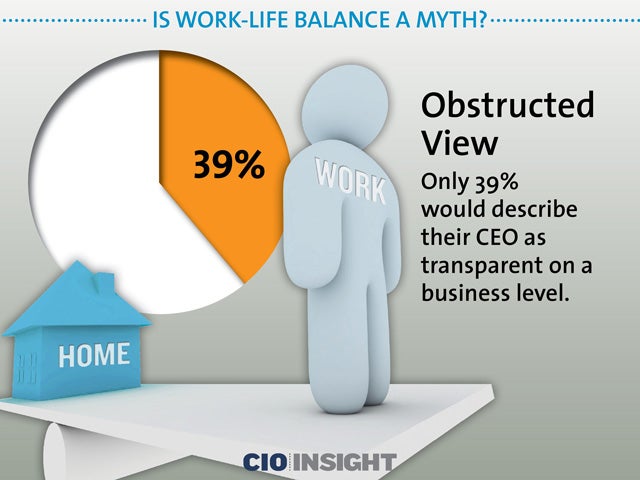 Obstructed View
Obstructed View
Only 39% would describe their CEO as transparent on a business level.
 Influential Parties
Influential Parties
59% say their co-workers have the greatest impact upon their happiness on the job, while 31% cite their direct manager(s).